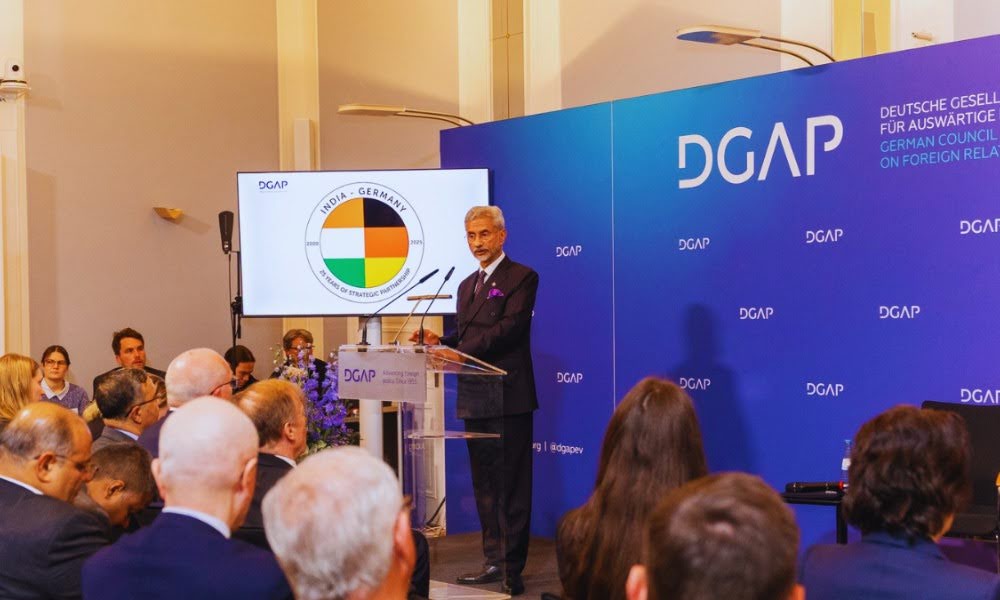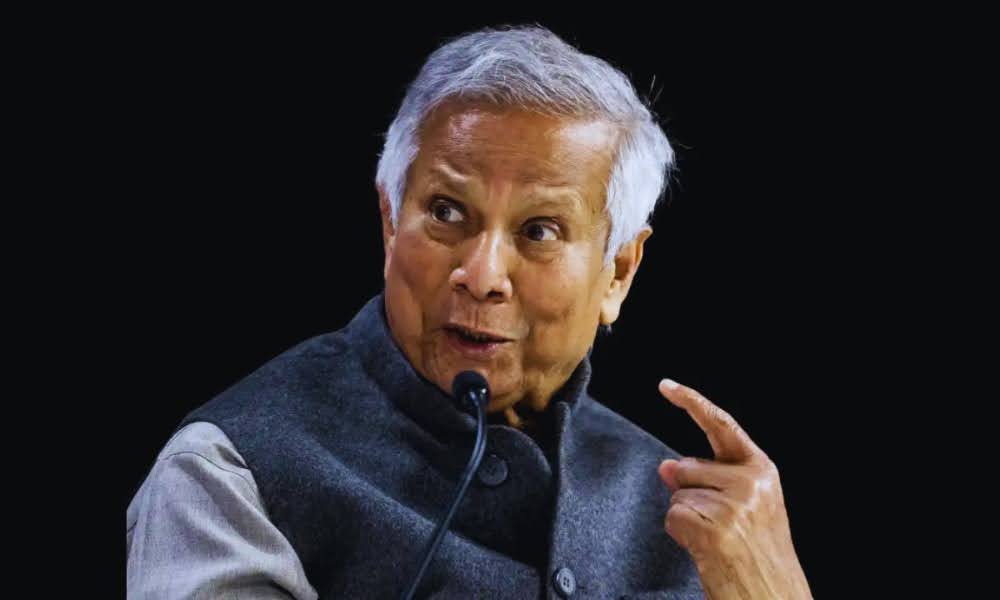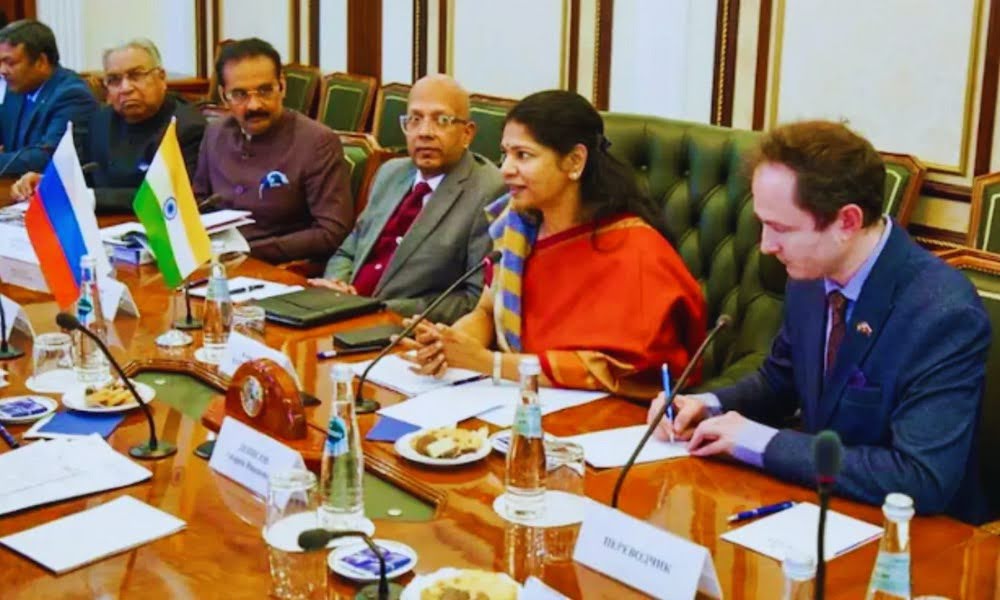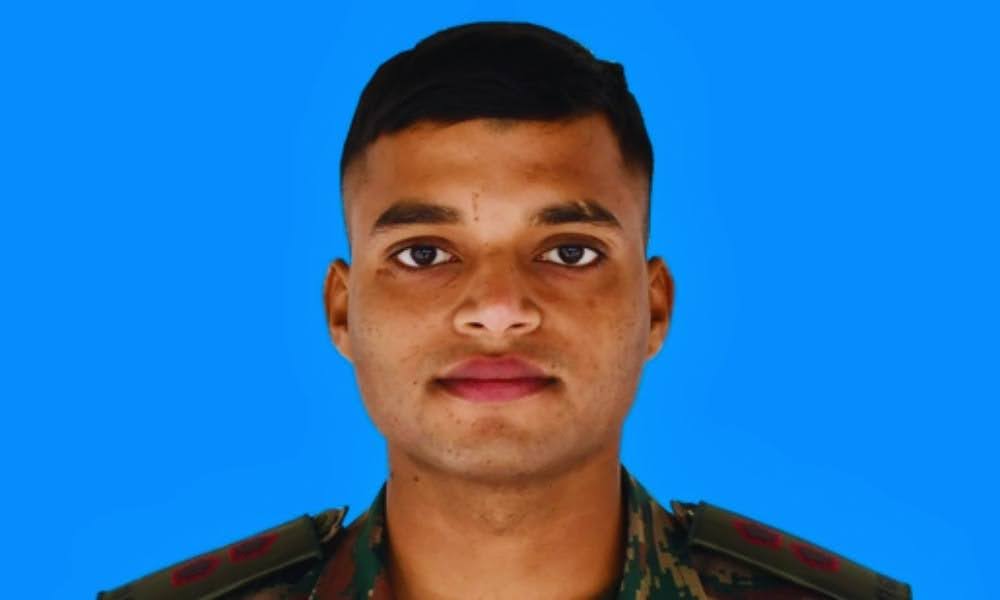India Won’t Yield to Nuclear Blackmail, Says S Jaishankar After Pahalgam Attack

External Affairs Minister S Jaishankar firmly stated that India has zero tolerance for terrorism and will never give in to nuclear blackmail.
These remarks were made in reference to the cross-border connections to the recent terror attack in Pahalgam. Jaishankar, who was in Berlin, said, “India has zero tolerance for terrorism. India will never give in to nuclear blackmail.”
Following his meeting with German Foreign Minister Johann Wadephul, Jaishankar said India would handle matters with Pakistan on a bilateral basis.
“India will deal with Pakistan purely bilaterally,” he said, emphasizing that “there should be no confusion in any quarter” about this approach.
German Foreign Minister Wadephul condemned the terror attack and supported India’s right to defend itself against terrorism. He also endorsed a bilateral resolution between India and Pakistan.
Strengthening Ties with Germany
Jaishankar highlighted that India values Germany’s understanding that every nation has the right to defend itself against terrorism. Wadephul noted that the relationship with India is growing more diverse and expressed a desire to “deepen our ties.”
Jaishankar echoed this sentiment, saying, “Our cooperation acquired many more facets, gained much stronger momentum.”
He also met with German Chancellor Friedrich Merz, underlining Merz’s commitment to elevate the India-Germany strategic partnership. Their discussions spanned trade, technology, investment, defence, security, sustainability, and mobility.
Criticism of Western Backing of Pakistan
In an interview with Danish daily Politiken, Jaishankar criticized Europe’s historical support for military regimes in Pakistan.
“That large, democratic Europe, to use your own term, has stood side by side with military dictatorships in the region,” he said. He added that no one had supported military regimes in Pakistan and undermined democracy there as much as the West.
Speaking in Copenhagen during his three-nation tour, Jaishankar reiterated India’s support for sovereignty and internationally recognized borders.
“You talk about the inviolability of borders — well, why don’t we start with the inviolability of my borders?” he asked.
He emphasized that terrorism remains one of the major collective challenges, alongside climate change, poverty, and the consequences of the Covid-19 pandemic in the Global South.
Ceasefire with Pakistan Was Bilateral
In an interview with Danish broadcaster TV 2, Jaishankar clarified that the understanding between India and Pakistan on May 10 to halt military actions was reached directly by the two militaries.
He dismissed US President Donald Trump’s claims that Washington played a role in brokering the truce.
“We resolved that conflict for the moment in its particular military form through an understanding for the cessation of fighting and military action,” he said.
He added, “The trigger for it was… we hit them very hard on the morning of (May) 10… and that caused the Pakistanis to say, ‘Ok, we’re prepared to stop the firing and reach an understanding about how to deal with it’.”
Jaishankar confirmed that the Pakistani military initiated the ceasefire through hotline communication. “It was the Pakistani army which sent a message that they were ready to stop firing, and we responded accordingly,” he said.
Rejection of Foreign Mediation
In his interview with Netherlands-based NOS, Jaishankar stressed that India would not accept any foreign mediation, including from the US.
While acknowledging that US officials had contacted both India and Pakistan, he clarified that the actual ceasefire was negotiated directly between the two countries.
“The US was in the United States,” Jaishankar pointedly remarked, reiterating that India insisted on hearing directly from Pakistan for any ceasefire agreement. “Their general has to call up our general and say this. And that is what happened,” he said.
Jaishankar rejected US President Trump’s claims of facilitating the truce. “This is something between us and the Pakistanis. We propose to deal with it bilaterally,” he said.
Historical Context of Conflict
Referring to the long-standing dispute, Jaishankar noted that Pakistan had used proxies since 1947, even at the time of independence.
“Pakistan sent in proxy forces and claimed they were tribals. It turned out there were Pakistani military people, some in uniform, some not,” he said.
He reaffirmed that Kashmir is a non-negotiable part of India. “No country negotiates a part of its territory,” he stated.
He added that the only conversation with Pakistan should be about when they plan to vacate the part of Kashmir under their illegal occupation.
Operation Sindoor and Strategic Messaging
Operation Sindoor was India’s response to the Pahalgam attack, targeting nine terror sites in Pakistan and PoK, killing over 100 terrorists linked to Jaish-e-Mohammed, Lashkar-e-Taiba, and Hizbul Mujahideen.
Jaishankar said the operation delivered a clear message: “If there are acts of the kind we saw on April 22nd, there will be a response. We will hit the terrorists. If the terrorists are in Pakistan, we will hit them where they are.”
He clarified that while the operation is still technically active, it does not mean continued fighting. “Right now, there is an agreed cessation of fighting and military action. So the operation is dormant,” he said.
Strategic Meetings in Berlin
In Berlin, Jaishankar also met German Minister of Economy and Energy Katherina Reiche to discuss talent linkages, industrial partnerships, and building resilient supply chains.
He had a “good conversation” with Foreign and Security Policy Adviser Gunter Sautter on global issues including terrorism.
Jaishankar emphasized the importance of India-Germany cooperation, saying, “Our deepening partnership is an important factor of stability in an uncertain world.”








